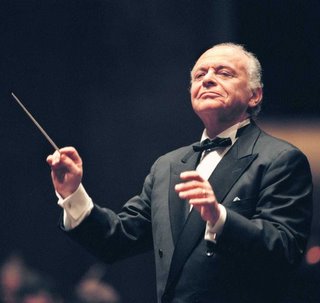Castleton Festival Comes to a Close
 The Festival Tent was filled to the brim for the closing concert of the inaugural Castleton Festival, by the Castleton Festival Orchestra. The air-conditioned space, a new addition for this summer’s Festival, could pass for a barn given its location in the middle of a picturesque field and its resident tenor frog, who joined in for the second half of the performance. Musicians from the Royal College of Music, the Qatar Philharmonic, and Charlottesville High School took up the majority of the Tent’s floor space, making for an up-close-and-personal musical experience in works of Bartók, Tchaikovsky, Grieg, Britten, and Verdi.
The Festival Tent was filled to the brim for the closing concert of the inaugural Castleton Festival, by the Castleton Festival Orchestra. The air-conditioned space, a new addition for this summer’s Festival, could pass for a barn given its location in the middle of a picturesque field and its resident tenor frog, who joined in for the second half of the performance. Musicians from the Royal College of Music, the Qatar Philharmonic, and Charlottesville High School took up the majority of the Tent’s floor space, making for an up-close-and-personal musical experience in works of Bartók, Tchaikovsky, Grieg, Britten, and Verdi.
Festival Artistic Director Lorin Maazel began at the podium for Bartók’s Giuoco delle coppie movement from the Concerto for Orchestra, with a patient demeanor teaching and guiding the orchestra with a light touch. Along with the audience, Maazel assumed good intentions from all participants, who played their hearts out in a work offering a virtuosic moment for everyone. An example of this supportive atmosphere occurred when the flute duo was more than a bit behind Maazel: instead of a sneer, roll of the eyes, or scrunch of the nose, one sensed acceptance and encouragement from Maazel and fellow musicians. Kudos to Maazel for creating an un-stuffy, positive teaching environment for all.
Cellist Han-Na Chang’s performance of Tchaikovsky’s Rococo Variations was particularly intense, given the immense resonance of her instrument. Chang at times appeared detached from her instrument, often spending more energy listening than playing, the outcome of which was exceptionally sincere. Maazel enjoyably offered a great flexibility in tempo. At one point, Chang overshot a high note by one tone and subtly turned it into an appoggiatura, while making a forgiving look, a handful of the cellists in the orchestra smiled in complete sympathy.
Fifteen-year-old Korean pianist Seongjin Cho joined Associate Conductor Andreas Weiser in Grieg’s Piano Concerto in A Minor. Cho’s approach was to play simply, beautifully, and perfectly, though often lacking invention and at times power. Weiser’s tense conducting featured gestures equally large for both loud and soft material, and overall he did not offer the orchestra much with which to connect; however, Weiser poetically set up the orchestra’s mysterious emergence from Cho’s second movement cadenza.
Joan Reinthaler, Orchestra Concert Sets Castleton's Double Bar (Washington Post, July 21) |




































































